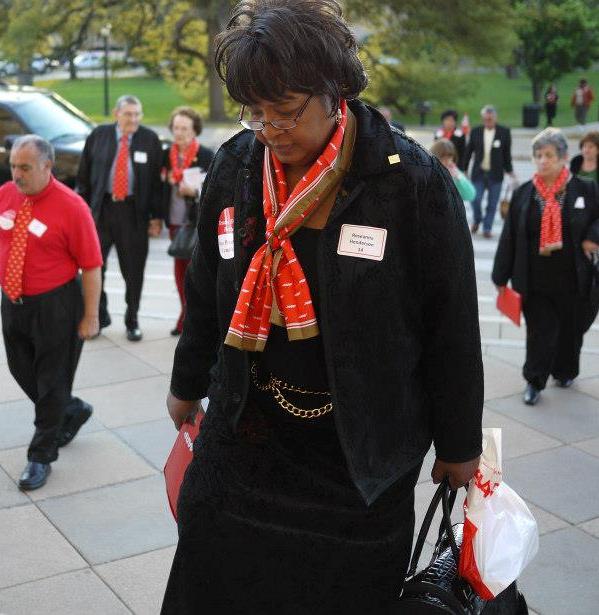AARP Hearing Center
By Ollie Besteiro
Austin is more than the “live musical capital of the world,” a vibrant high-tech hub and home to one of the top universities in the country. Decisions made there by those same legislators we elect back home have a profound impact on our everyday lives.
This year was no different. When the dust settled at the end of the 2013 regular legislative session, Texans had gained some important wins and in many cases avoided some painful losses. Throughout the 140-day period AARP was there, working with bill sponsors, testifying before committees and mobilizing our members and the public on key issues and concerns for older Texans.
Older Texans can cheer about improved access to medical services thanks to a new law helping Texas recruit the next generation of doctors by establishing incentives for training primary care physicians and encouraging more doctors to participate in Medicaid and Medicare. The law will also make it easier for advance practice registered nurses to see patients and write prescriptions, providing more Texans of all ages with access to health care professionals.
Long-term care at home, an essential service for many of our seniors, has also been improved and expanded. More low-income seniors will be able to receive community-based long-term care through Medicaid, the primary payer for long term care services for seniors. This will allow them to stay in their homes and communities with their families while also saving taxpayer dollars.
Moreover, community-based attendants, those hard-working folks who help care for our parents or grandparents on Medicaid, will receive a pay increase--bringing starting pay up to $7.86 per hour and exceeding the state minimum of $7.25 per hour.

Texas seniors who live in nursing homes also got a win when the Legislature adopted measures to greatly improve these facilities. Texas Medicaid nursing home reimbursement rates have long been among the lowest in the country. The legislature passed a 6 percent increase over two years, making it easier for nursing homes to retain quality staff, a significant indicator of care quality.
In addition, Medicaid-funded nursing home stays throughout Texas will soon fall under STAR+PLUS managed care. This will encourage higher quality care by rewarding the best plans with more enrollees and by creating higher standards.
Another key issue where good things happened and bad things were kept from happening was the defined-benefit pension program essential to the financial security of Texas teachers as well as other school district and state employees. Earlier this year, some groups argued that the state pension programs should be converted to individual--and more uncertain—401k-type programs. This could have spelled disaster for workers who have devoted their lives to public service.
In the end, the Texas Legislature decided to preserve pensions for state and school employees while granting cost-of-living increases to those who have been retired the longest. To help strengthen the system, both state government and current employees will contribute a bit more to the pension system, and new employees will have stricter requirements on when they can retire.
Payday and auto title loan businesses prey on economically vulnerable Texans, by offering them “fast cash” loans that can carry fees in excess of 500% APR. Families often pay many times over the original amount borrowed for these small dollar loans, leaving them with long-term financial problems.
Cities like Dallas, San Antonio, El Paso, Austin and Denton have taken strong steps to protect their citizens from predatory lending by passing ordinances that send a powerful signal that abusive lending practices will not be tolerated. Potential harm was averted this year when the Legislature shut down a measure that would have undone the strong payday ordinances enacted by these local governments.
The Legislature also acted to bolster protections for older Texans from financial abuse by clarifying powers of attorney. These essential tools are used to delegate authority to someone else to handle your financial decisions but can also give dishonest people a license to steal. Power of attorney forms will now be designed to make it easier for consumers to clearly detail the duties and responsibilities being authorized.
Of course, tough decisions are made at our state capitol each time the legislature meets and not all of them are popular to say the least. But at least in these particular areas in 2013, the voices of older Texans were heard loud and clear and their lives were improved. And that’s good news for all of us.































































